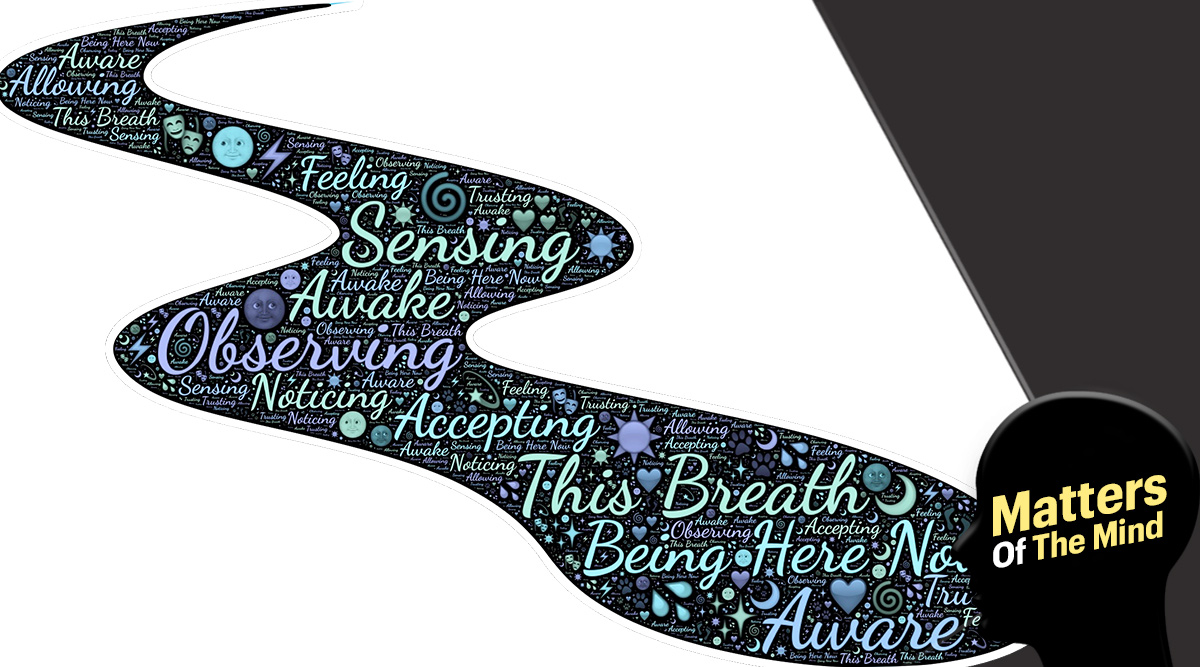Matters of the Mind: How to achieve conscious cognition

The first and the most important step is to create recognition of stress through Focus
This is Part 2 of the article on conscious cognition, released last week.
“The strength and beauty of the journey of conscious cognition is that it never ends nor concludes. The process continues, empowering one in bits and pieces, soothing and healing and at the same time igniting new fires.”
Last week, I shared with you my experience, both personally and professionally, in dealing with crisis, stress or even just daily life by combining spirituality and cognitive theory. I call the process “conscious cognition” because it best explains the practice and the purpose. As promised, in this part, I will share with you some steps to achieve and use conscious cognition.
The first and the most important step is to create recognition of stress through Focus. Often we float away too lightly in our heads to steer ourselves into a meaningful direction–like a paper boat in the current and then blame the strong winds. Digging our feet in, developing strength in focus, stillness and silence can give us a much-needed moment to redirect and restore. The challenge here is that we need to focus our attention on nothingness.
Focusing on rhythmic breathing, or a visual stimulus at a distance, some auditory input or sounds, on the sensation of our thumb on our ring finger or the motions of our belly rising with every inhalation and falling while exhaling works. Use whichever sensory modality resonates or is comfortable. Bringing our attention into a state of sustained concentration is not easy when the mind is rattled. This will help slow down the incessant mental chatter flashing and bouncing through our bodies, impacting almost every organ in its way.
Another advantage of the process is awareness of our words, tonality, speed, beliefs and rigidities in our thoughts. This is the best way to get an insight into our own personalities, our irrational thoughts and honestly just what we bring to every situation in our life, in the form of perceptions.
With continued effort, we can achieve what I call a “thought vacuum”–an empty space, a vacancy, a mere pause, characterised with a hunger to be filled with the closest available thoughts. This means that without sustained effort and focus, the powerful thought void will get filled in with the usual chatter, leading to the same consequences. To be able to keep this vacuum devoid of mental activity for a period of time, such that we are able to experience awareness and presence, is consciousness.
Becoming conscious of our cognition, aware of our inner voice, when we are able to identify and challenge irrationalities and cognitive errors leading us to replace negative and unconstructive patterns of thought with accepting, rational, constructive, solution-based thinking, leads to better health, happiness and growth.
Further, it is important to find a nurturing place inside yourself–your mind, heart or belly–to augment your strengths. The belief is that conscious cognition not just helps us with “being present” in spirit and mind, change or reject what doesn’t work but also adds vigour to our strengths, enhancing the substance of our being, making us focus on vitality and what is, not on the lack of, or what could be.
For more lifestyle news, follow us: Twitter: lifestyle_ie | Facebook: IE Lifestyle | Instagram: ie_lifestyle
Source: Read Full Article
